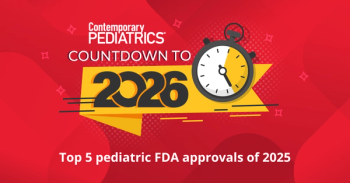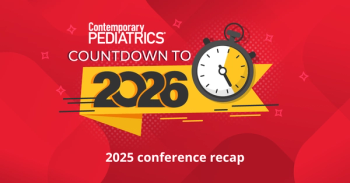
Editorial: Delayed gratification
Pediatricians can't always have immediate feedback for every patient, but decreases in serious illness later on life may be delayed gratification that can still be satisfying.
EDITORIAL
Delayed gratification
Which of the children you immunized today would have developed pertussis or measles or meningitis if you hadn't immunized them? Which of the children whose families you gave dietary advice today will not develop adult coronary artery disease because of your guidance? Both of these questions are difficult to answer, the second even more than the first.
Everyone performs better with feedback. We advise parents to mold the behavior of their children by catching them doing something good and praising them for it. Pediatricians' efforts are reinforced, either positively or negatively, by patient response to care, by laboratory test results, and, in some practices, by collective data. After years of comparing history and physical findings with the results of throat cultures, the individual clinician becomes more confident about his or her clinical diagnostic skill. When pediatric practices keep track of their own immunization rates, those rates improve, according to studies.
We get no reinforcement for most of our prevention efforts, however. Wouldn't it be wonderful if bells and whistles went off in the office each time a teenager actually heeded our advice not to smoke? What if we could go home each day knowing which one of the 10 children whose parents we advised about proper car seat installation would be protected from injury because we took the time to provide guidance? Since we can't always know which child's health or life is altered by our advice or intervention, we develop policies and risk assessment guidelines to help us determine where best to focus our efforts.
We can't expect immediate feedback for every patient. If enough of us have done the job, however, we'll see decreases in rates of lung cancer, coronary artery disease, and meningitis. It's not exactly immediate feedbackmore like delayed gratificationbut it should be satisfying nonetheless.
Julia A. McMillan, MD, Editor-in-chief of Contemporary Pediatrics, is Vice Chair, Pediatric Education, and Director, Residency Training, Johns Hopkins University School of Medicine, Baltimore.
Julia McMillan. Editorial: Delayed gratification.
Contemporary Pediatrics
2000;12:9.
Newsletter
Access practical, evidence-based guidance to support better care for our youngest patients. Join our email list for the latest clinical updates.








